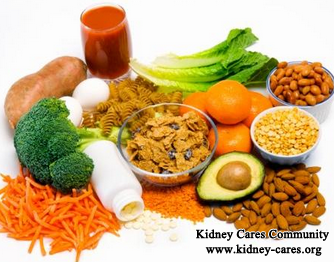 Search
Search
 Search
Search
 People on dialysis treatment should follow a special diet to help control blood levels of certain elements, such as potassium, phosphorus, sodium and protein. Some vegetables contain potassium and should be limited by those on dialysis.
People on dialysis treatment should follow a special diet to help control blood levels of certain elements, such as potassium, phosphorus, sodium and protein. Some vegetables contain potassium and should be limited by those on dialysis.
What is the function of potassium?
Potassium plays an important role in the function of nerve and muscle cells throughout the body, including regulating heart rhythm. When potassium gets too high, it is called hyperkalemia. When they are too low, it is known as hypokalemia. Both conditions can be dangerous and threaten your life.
Potassium and dialysis
Normally, the kidneys filter out and excrete excess potassium from the blood. For people with end stage renal disease, the dialysis machine helps filter out excess potassium. The amount of potassium you consume in your diet affects the amount of potassium in your blood. Dialysis people should follow a strict diet and consume no more than 2 to 4 grams of potassium per day. How much potassium you can consume each day depends on the type of dialysis you receive as well as your lab values. A normal serum potassium level is 3.5 to 5.0mE/qL.
Vegetables to limit and avoid
Some vegetables contain a large amount of potassium. These vegetables are not recommended for consumption by patients receiving dialysis. All varieties of potatoes, including sweet potatoes, should be avoided because they are high in potassium. Other high potassium vegetables such as tomatoes, winter squash, pumpkin, avocado, beets, asparagus and spinach.
Low potassium vegetables
Summer squash, zucchini, broccoli, cauliflower, green and wax beans, celery, peppers, onions, and cucumbers do not contain large amounts of potassium and dialysis patients can eat these vegetables to keep potassium levels within a safe range.
Potassium is not only found in vegetables but also in fruits, legumes, salt substitutes as well as dairy products. People who undergo dialysis should take all of these sources of potassium into consideration. You can consult our online doctor or leave a message below for your individual needs.